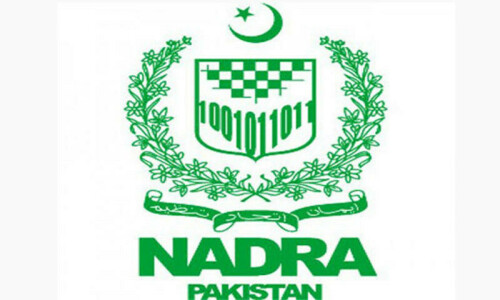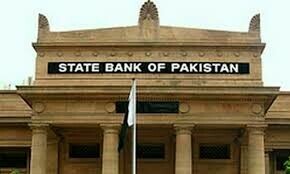
Pakistan’s progress on digital banking has been woefully slow; it is even more distressing in the Islamic fintech space despite the growing demand for Shariah-compliant digital banking solutions.
While several other Muslim and non-Muslim countries are making strides in the fast-emerging Islamic fintech market, Pakistan is falling behind this global trend, a strong appetite for Shariah-compliant digital finance notwithstanding.
The policymakers’ failure to get even a single fully operational digital bank aligned with Islamic financial principles off the ground is even more surprising given the fact that the entire banking industry is to completely convert itself into being Shariah-compliant by the end of 2027.
Over the last few years, Islamic banking, largely driven by individual consumers seeking Shariah-compliant financial solutions, has grown rapidly. Currently, it constitutes nearly a fifth of the country’s entire banking industry, with assets surging to Rs9.9 trillion and deposits increasing to Rs7.6tr. The net financing by six Islamic banks and 16 conventional banks that have standalone Islamic banking branches has reached Rs3.25tr and their net investments rose by 22.3 per cent to Rs4.8tr.
Growth momentum in the Islamic banking industry has not convinced policymakers to create an ecosystem for digital Islamic banking
However, this growth momentum in the Islamic banking industry has not convinced policymakers to create an ecosystem for digital Islamic banking, as is the case in countries like Malaysia, Indonesia, and the United Arab Emirates, despite the interest of many investors amid a notable demand growth.
Though Islamic banks operating in the Pakistan market have mobile apps, there is a fundamental difference between an Islamic bank’s mobile app and a fully digital Islamic bank. The apps serve as extensions of traditional banking services rather than fully digital banking ecosystems.
In online banking, only certain aspects of banking, such as money transfers and payments, are digitised, but in digital banking, every programme, function, process and activity undertaken by the banks and their customers is fully digitised.
A digital bank, on the other hand, offers all kinds of financial products and services primarily through digital platforms or electronic channels instead of physical branches. Digital banking is not just online or mobile or internet banking; it goes way beyond that and involves complete automation of the front end and back end of a bank and everything in between.
None of the existing Islamic banking apps allow for account opening online, nor do they provide an entirely digital end-to-end experience. Customers must still visit physical branches for verification, documentation, and onboarding, defeating the very purpose of digital banking.
None of the existing Islamic banking apps offer an entirely digital end-to-end experience as customers must still visit physical branches for documentation, defeating the very purpose of digital banking
Even though the State Bank rolled out a Digital Retail Banks (DRBs) framework by issuing digital banking licences to five banks — Hugo Bank, KT Bank Pakistan, Mashreq Bank Pakistan, Raqami Islamic Digital Bank, and Easypaisa Bank — in January 2023, the progress on this front has been extremely slow.
Easypaisa Bank was authorised by the State Bank last month to become commercially operational as a fully digital bank. Even Easypaisa has built on its existing wallet infrastructure rather than being an entirely new digital bank. Last week, Mashreq Bank was awarded a pilot licence to operate as a digital bank. However, the remaining license holders have yet to make any significant moves, raising concerns about execution delays, regulatory bottlenecks, and market readiness.
This raises the question of whether digital banks are equipped to handle such a challenge, especially the ones that were tasked to introduce complete Islamic digital banking. Raqami, which was granted a digital banking licence, has not yet commenced commercial operations.
To many, the failure to make any headway in Shariah-compliant fintech is another “missed opportunity” for Pakistan and a setback for its ambition to be a global leader in Islamic finance.
The digital banking framework was primarily designed for setting up new digital banks. Nonetheless, the State Bank allowed traditional banks/microfinance banks to also apply for their conversion into a digital bank based on a viable business case and satisfactory digital financial services experience.
Under this framework, the SBP may grant two types of digital bank licenses: Digital Retail Bank (DRB) and Digital Full Bank (DFB). DRBs will primarily focus on retail customers, and DFBs can deal with retail customers as well as business and corporate entities.
Subsequent to completion of the transition phase, DRBs may graduate to receive a DFB licence subject to fulfilment of the applicable minimum capital requirement and completion of a two-year progression phase.
Many industry leaders insist that Pakistan urgently needs a truly Islamic DRB; one that goes beyond basic digital wallets and offers a complete suite of Islamic financial services. The gaps in the current Islamic digital banking landscape are immense, and the need for a digital bank that delivers the full potential of Islamic banking finance solutions cannot be overstated, given the vast unbanked population as well as the rapid adoption of smartphones and internet services.
The opportunity for a digital-first Islamic banking model is present, and so is investor interest in Islamic fintech. Though the existing fintech players have the potential to transition into Islamic banking, they have yet to fully integrate Shariah-compliant products like interest-free loans, Islamic saving accounts, and Takaful. Challenges such as regulatory complexities, industry inertia, and lack of incentives hinder the transition to digital Islamic banking.
The adoption and growth of digital banking services is lagging due to limited technology infrastructure and digital literacy, undermining investor confidence in the protection and profitability of their investments. Besides, a fragmented regulatory environment signified by the lack of coordination among federal and provincial agencies also deters investors from seeking a clear and predictable framework.
The depreciating dollar and declining returns have further eroded investor sentiment, while the market remains sluggish, struggling to keep pace with global fintech advancements. At the same time, Pakistan’s broader economic challenges have added further uncertainty for foreign investors, complicating investment decisions and making it even harder for fintech players to thrive.
Yet investor interest in Islamic fintech is said to be high because of the potential for its growth on notable demand from the population. Nevertheless, industry sources insist that establishing a Shariah-compliant digital banking ecosystem in Pakistan requires a clear regulatory framework, secure digital infrastructure, development of compliant financial products, market education, ethical standards, and alignment with global Islamic finance practices.
Published in Dawn, The Business and Finance Weekly, February 24th, 2025















































